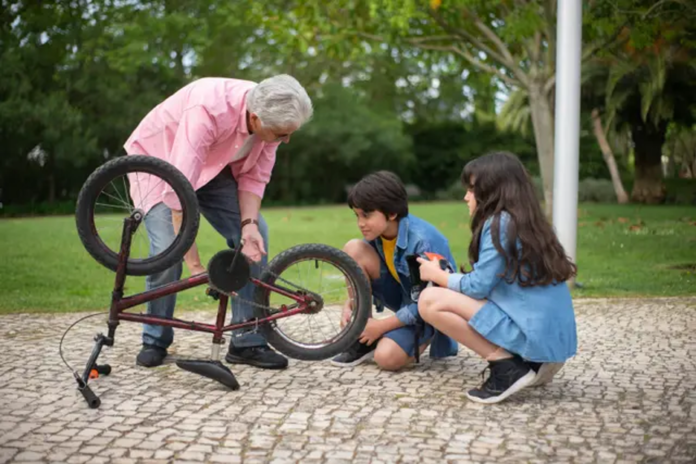في عالم يشعر بالتشرذم على نحو متزايد، لم تكن الحاجة إلى التواصل الاجتماعي أكثر إلحاحًا من أي وقت مضى. تكشف عقود من الأبحاث أن العلاقات الاجتماعية ذات المغزى تشكل أهمية بالغة للصحة البدنية والعقلية والعاطفية. ومع ذلك، في العديد من المجتمعات - بما في ذلك تلك الموجودة في الشرق الأوسط - أدت التحضر والهجرة والتحديات الحديثة الأخرى إلى إجهاد شبكات الاتصال التقليدية. ومع ذلك، فإن الجهود العالمية، بما في ذلك لجنة الاتصال الاجتماعي التابعة لمنظمة الصحة العالميةوتجري الآن جهود لمعالجة الشعور بالوحدة والعزلة وإعطاء الأولوية للتواصل الاجتماعي كهدف للصحة العامة. وكجزء من هذه الجهود وغيرها من الجهود المماثلة، هناك حاجة إلى إرشادات الصحة العامة فيما يتعلق بالتواصل الاجتماعي.
ولتحقيق هذه الغاية، لدينا المبادئ التوجيهية الموصى بها للصحة العامة فيما يتعلق بالتواصل الاجتماعي توفر هذه المبادئ التوجيهية خارطة طريق لمعالجة هذه التحديات على المستويين الفردي والمجتمعي. تم تطويرها باستخدام نهج صارم قائم على الأدلة لضمان ملاءمتها وقابليتها للتطبيق عبر سياقات متنوعة. بدأت العملية بدراسة دلفي، بمشاركة مجموعة عالمية من الخبراء في مجال الاتصال الاجتماعي لجمع الإجماع على المبادئ الأساسية والتوصيات العملية. وقد تم استكمال ذلك بمراجعات سريعة للأدلة ومقابلات جماعية مركزة مع فئات سكانية رئيسية، بما في ذلك كبار السن والمجتمعات المهمشة والمجموعات المتنوعة ثقافيًا. قامت المسوحات الكمية بتقييم جدوى وقبول المبادئ التوجيهية، ودمج الأفكار من عامة السكان. تم تقييم كل مبدأ توجيهي باستخدام إطار تصنيف، مع مراعاة عوامل مثل قوة الأدلة والتوافق الثقافي وجدوى التنفيذ. من خلال الملاحظات المتكررة والتشاور مع أصحاب المصلحة، تم تحسين المبادئ التوجيهية لموازنة الدقة العلمية مع التطبيق العملي، مما يضمن معالجتها لاحتياجات الفرد والمجتمع لتعزيز الاتصال الاجتماعي الهادف.
وإدراكاً منا بأن التواصل الاجتماعي هو جهد جماعي، تؤكد هذه المبادئ التوجيهية على التفاعل بين الأفعال الشخصية والاستراتيجيات التي يقودها المجتمع. ومن خلال الاستفادة من نقاط القوة الثقافية في الشرق الأوسط، مثل الترابط والتماسك الأسري، ومن خلال مبادرات مثل شبكة منارة، يمكننا تعزيز التعاون وبناء القدرات وزيادة الوعي بالقوة التحويلية للتواصل.
المبادئ التوجيهية الفردية: بناء الاتصال في الحياة اليومية
1. اجعل التواصل الاجتماعي أولوية طوال حياتك
إن التواصل الاجتماعي لا يحدث من تلقاء نفسه، بل يتطلب عمدية. ويتعين على الأفراد أن يفكروا بانتظام في احتياجاتهم الاجتماعية وأن يتخذوا خطوات لرعاية علاقات ذات مغزى. وفي الشرق الأوسط، توفر التقاليد الثقافية والتجمعات الدينية فرصًا طبيعية للتواصل. ومن خلال دمج هذه الأحداث في الحياة اليومية، يمكن للأفراد الحفاظ على الروابط التي تدعم الصحة والعافية.
تعرف على المزيد حول هذا الدليل هنا.
2. تنمية الثقة الاجتماعية في نفسك والآخرين
قد يكون التواصل الاجتماعي مخيفًا، وخاصة بالنسبة لأولئك الذين يشعرون بالعزلة أو انعدام الأمان. إن اتخاذ خطوات صغيرة للتواصل مع الآخرين، والتعاطف مع الذات، والسعي للحصول على الدعم المهني عند الحاجة أمر ضروري. يمكن أن تساعد منظمة MENARAH من خلال دعم البرامج المجتمعية التي تعزز الثقة، مثل المجموعات التي يقودها الأقران أو ورش العمل التي تعالج وصمة العار المرتبطة بالوحدة.
تعرف على المزيد حول هذا الدليل هنا.
3. بناء شبكة اجتماعية قوية مع مجموعة متنوعة من أنواع العلاقات
إن الاعتماد على شخص واحد لتلبية كافة الاحتياجات الاجتماعية قد يكون مقيداً. ويتعين على الأفراد أن يهدفوا إلى تكوين علاقات عبر مختلف مجالات الحياة ــ العمل والأسرة والمجتمع. وفي الشرق الأوسط، يمكن للبرامج التي تتواصل بين الأجيال أن تساعد في سد الفجوات وخلق شبكات متنوعة وداعمة في الوقت نفسه.
تعرف على المزيد حول هذا الدليل هنا.
4. استثمر في الحصول على قدر كافٍ من التواصل الاجتماعي
إن التفاعلات المتكررة والهادفة تشكل مفتاحاً لمكافحة الشعور بالوحدة. ويمكن للأنشطة البسيطة، مثل اجتماعات القهوة الأسبوعية أو العمل التطوعي المجتمعي، أن تساعد الأفراد على البقاء منخرطين. ويمكن لـMENARAH أن تتعاون مع المنظمات المحلية لتوفير مساحات وأحداث يمكن الوصول إليها تشجع على التواصل المنتظم.
تعرف على المزيد حول هذا الدليل هنا.
5. الحفاظ على علاقاتك مع الآخرين وتعميقها
تتطلب العلاقات الصحية الرعاية والاهتمام. ومن خلال ممارسة التواصل الجيد، ووضع الحدود، والاستجابة لاحتياجات الآخرين، يمكن للأفراد تعزيز العلاقات التي تصمد أمام اختبار الزمن. وفي الشرق الأوسط، يمكن أن يساعد الاستفادة من الممارسات الثقافية مثل الوجبات المشتركة والتجمعات العائلية في تعميق الروابط القائمة.
تعرف على المزيد حول هذا الدليل هنا.
6. ابحث عن التفاعلات وجهاً لوجه واستخدم التكنولوجيا بحكمة
ورغم أن التكنولوجيا أداة قيمة للبقاء على اتصال، فإنها ينبغي أن تكمل التفاعل الشخصي، وليس أن تحل محله. ويمكن لكبار السن في الشرق الأوسط الاستفادة من برامج محو الأمية الرقمية للحفاظ على الروابط مع الأسرة في الخارج أثناء المشاركة في الفعاليات المجتمعية التي توفر المشاركة وجهاً لوجه.
تعرف على المزيد حول هذا الدليل هنا.
إرشادات المجتمع: إنشاء بيئات للتواصل
1. تعزيز الوعي بأهمية التواصل الاجتماعي
تلعب المجتمعات دورًا محوريًا في تشكيل المعايير المتعلقة بالتفاعل الاجتماعي. ويمكن للحملات العامة والتعليم المهني والدعوة إلى السياسات أن تزيد من الوعي بالفوائد الصحية للتواصل. ويمكن لـMENARAH التعاون مع القادة المحليين لضمان صدى هذه الرسائل عبر الجماهير المتنوعة.
تعرف على المزيد حول هذا الدليل هنا.
2. تعزيز التنمية الاجتماعية والعاطفية الصحية
ومن خلال توفير التعليم والموارد اللازمة لبناء المهارات الاجتماعية والعاطفية، تستطيع المجتمعات تمكين الأفراد من التواصل. وفي الشرق الأوسط، تستطيع البرامج المناسبة لكل عمر أن تدعم الأطفال والبالغين والأجيال الأكبر سناً على حد سواء، وتعزز المرونة والرفاهة العاطفية.
تعرف على المزيد حول هذا الدليل هنا.
3. جعل التواصل الاجتماعي أولوية في السياسات والممارسات
إن السياسات التي تشجع على التواصل ــ مثل تمويل البرامج المجتمعية أو التصميمات الحضرية التي تعطي الأولوية لإمكانية المشي ــ تخلق بيئات حيث يمكن للعلاقات أن تزدهر. ويمكن لمنظمة مينارا أن تدعو إلى إدراج مقاييس التواصل الاجتماعي في أطر السياسات العامة.
تعرف على المزيد حول هذا الدليل هنا.
4. تصميم بيئات للتواصل والاستثمار في الفعاليات والأنشطة والبرامج الاجتماعية
تزدهر المجتمعات عندما يتم تصميم المساحات المادية لتشجيع التفاعل. يمكن أن تصبح الحدائق العامة والمراكز الثقافية والفعاليات الشاملة مراكز للتواصل. يمكن إعادة تصور المساحات التقليدية في الشرق الأوسط، مثل المساجد والأسواق، لتعظيم إمكانية الوصول والشمول.
تعرف على المزيد حول هذا الدليل هنا.
5. تحسين إمكانية الوصول والإدماج لجميع الأشخاص
إن إزالة الحواجز أمام المشاركة الاجتماعية أمر بالغ الأهمية. ويتعين على المجتمعات أن تعالج قضايا مثل تحديات التنقل، والاختلافات اللغوية، والتمييز المنهجي لضمان قدرة الجميع على التواصل. ويمكن لـMENARAH أن تقود الجهود الرامية إلى تعزيز المساواة والإدماج في المبادرات المجتمعية، وتعزيز المساحات التي يشعر فيها جميع الأعضاء بالتقدير.
تعرف على المزيد حول هذا الدليل هنا.
6. قياس التقدم المحرز نحو تحسين الرفاهية الاجتماعية
ولضمان التأثير المستدام، يتعين على المجتمعات مراقبة وتقييم رفاهتها الاجتماعية. ومن خلال الاستثمار في الأبحاث واستخدام المقاييس ذات الصلة بالمنطقة، يمكن لـMENARAH توجيه المجتمعات في تحديد الفجوات وتنفيذ الحلول القائمة على الأدلة.
تعرف على المزيد حول هذا الدليل هنا.
التفاعل بين الأفعال الفردية والمجتمعية
إن التواصل الاجتماعي ليس مسعى من جانب واحد. ففي حين يتعين على الأفراد أن يحرصوا على تعزيز العلاقات فيما بينهم، فإن المجتمعات توفر البيئات التي تجعل التواصل ممكناً. وفي الشرق الأوسط، يتجلى هذا التفاعل بشكل خاص:
- الأفراد يحتاجون إلى مجتمعات: إن الأماكن العامة التي يمكن الوصول إليها والسياسات الشاملة تمكن الأفراد من تكوين العلاقات والحفاظ عليها.
- المجتمعات تحتاج إلى أفراد: إن الأفراد المشاركين يخلقون نسيجًا اجتماعيًا نابضًا بالحياة يعزز الروابط المجتمعية.
تتمتع شبكة MENARAH بموقع فريد يسمح لها بربط هذه الجهود، وتعزيز التعاون بين الأفراد وصناع السياسات والمنظمات لمعالجة الحواجز النظامية مع تمكين الإجراءات الشخصية
طريق جماعي إلى الأمام
توفر المبادئ التوجيهية للصحة العامة الموصى بها للتواصل الاجتماعي إطارًا شاملاً لتعزيز الرفاهية الاجتماعية على المستويين الفردي والمجتمعي. من خلال العمل معًا، يمكن للأفراد والمجتمعات بناء مجتمعات أكثر صحة وتماسكًا. ومن خلال مبادرات مثل شبكة MENARAH، يمكن تكييف هذه المبادئ التوجيهية وتنفيذها للحفاظ على نقاط القوة الثقافية في الشرق الأوسط مع معالجة التحديات الحديثة. دعونا نعطي الأولوية للتواصل - من أجل مستقبل أكثر صحة وترابطًا

بطاقة كيفر جي
دكتور كيفر ج. كارد، دكتور كارد هو باحث يدرس العوامل الاجتماعية والبيئية التي تحدد الصحة والرفاهية. وهو يشغل حاليًا منصب المدير العلمي للتحالف الكندي للتواصل الاجتماعي والصحة، ورئيس تحالف الصحة العقلية وتغير المناخ، ورئيس مركز الصحة المجتمعية للصحة الجنسية في الجزيرة، ومدير الأبحاث في شركة GenWell، وأستاذ مساعد في كلية العلوم الصحية بجامعة سيمون فريزر. وفي جامعة سيمون فريزر، يقود مختبر النظم البيئية وأنماط الحياة الصحية (HEAL)، حيث يدرس هو وفريقه العوامل الاجتماعية والبيئية التي تحدد الصحة والرفاهية، مع التركيز على المجتمع والتواصل الاجتماعي، والمساواة الصحية، والضائقة العاطفية. ومن خلال أبحاثه الأكاديمية، درب الدكتور كارد أكثر من 50 مساعدًا بحثيًا، وطلابًا جامعيين، ومتدربين في الدراسات العليا، وزملاء ما بعد الدكتوراه. ويعمل الدكتور كارد وأعضاء مختبره معًا على تعزيز فهمنا لكيفية بناء مجتمعات أكثر سعادة وصحة في مواجهة الأزمات الصحية العامة المتزايدة، بما في ذلك تغير المناخ، والأوبئة، والاضطرابات الاقتصادية. تم عرض أعمال الدكتور كارد في أكثر من 200 منشور علمي وأكاديمي، وأكثر من 100 عرض تقديمي في مؤتمرات أكاديمية، وما يقرب من 100 مقابلة مع وسائل الإعلام الإخبارية. ومن خلال هذه المخرجات ودفاعه، أحدث الدكتور كارد تأثيرات كبيرة على سياسة وممارسة الرعاية الصحية، ووفر فرص التدريب للجيل القادم من الباحثين والممارسين في كندا.





